The Rödlöga, what Melker of Sweden mellifluously calls their “easy to maneuver and playful kayak,” is something of an optical illusion, a curious boat whose characteristics are not what they first appear to be.
Melker Rödlöga: An eco-conscious kayak that can play or trip
Melker Rödlöga HV Specs
Length: 16’7”
Width: 21.25”
Weight: 54 lbs
MSRP: $3,889 USD / $5,289 CAD
melkerofsweden.se
A few years ago, I reviewed the Melker Ulvön, the company’s 17-foot fast touring kayak, which, although built for speed, was remarkably versatile and playful. That’s when I learned Northern Europe has become a hotbed of kayak innovation, where the stubby recreational kayak trend never blitzed the market like it did here and 80 percent of kayaks sold for exploring those brisk boreal coastlines are still serious, full-size touring boats. Now we are seeing that adventurous Scandinavian influence creeping into our kayak shops here. After a pandemic hiatus, Melker is back with a fresh shipment of its long boats for demo and retail in North America, and a new design for us to review, the Rödlöga.
On the water performance
While Melker bills its Ulvön as “a serious expedition boat with a playful character,” the Rödlöga is somewhat the opposite—or more accurately, just a shorter, more maneuverable version of the same clever set of design compromises: a playful kayak that is nonetheless surprisingly spacious and capable for short expeditions. Both kayaks blur the lines between categories in similar ways.
After reading that the Rödlöga was “designed with rougher water, currents, tides and surf waves in mind,” I expected it to paddle like other ocean playboats, twitchy with poor initial stability, just hankering to be put on edge, and skittish like a whitewater kayak, prioritizing fun and maneuverability over speed and tracking.
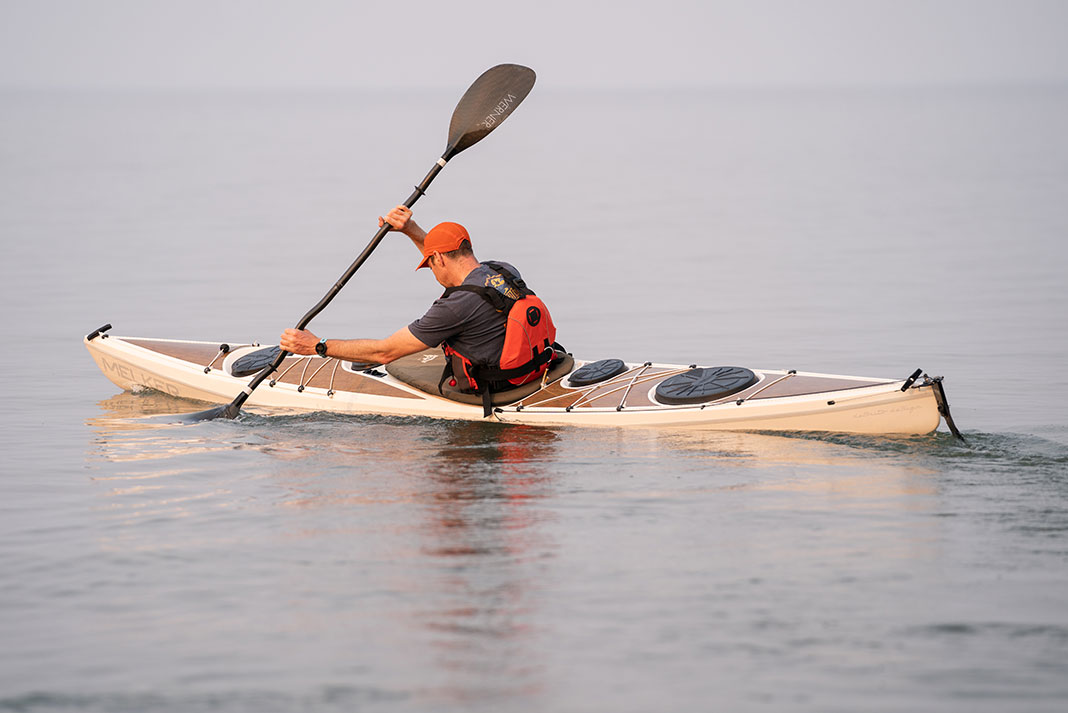
Yet on the first few strokes I was amazed at the stability, both a relaxing initial solidity and bomber secondary allowing the Rödlöga to be aggressively edged onto its moderately hard chine without ever feeling like it will accidentally go over the limit. I quickly learned the Rödlöga welcomes beginners and intermediates, albeit with some expert moves up its sleeve. Melker aptly calls it “the perfect kayak to help improve your paddling skills.”
Melker advertises the Rödlöga as having lots of rocker but the waterline nonetheless extends the full length of the boat, enhancing its speed and giving it a very typical touring kayak compromise between maneuverability and easy tracking. It’s on edge that you notice its exceptional agility. The rest of the time, the Rödlöga tracked so well I hardly bothered to use the skeg or the rudder (the fact that it comes with both indicates just how much this kayak aims to please everyone). It was only in a following sea that the rudder felt like a real advantage. In a crosswind I used the skeg to keep straight, but kept the rudder up so I didn’t have to bother steering with my feet.
Tripping capacity
The Rödlöga promo video undersells its trip-worthiness, claiming capacity for an overnight or maybe a weekend. The Swedes must be more into glamping, because I packed for an overnight and had loads of room to spare. With a fulsome 190 liters of storage, you could easily check out of civilization for a week. Swedish industrial designer Magnus de Brito crafted the deck with a shallow arch that extends right to the edge, where it drops nearly vertically to the chine, and a gradual taper to the bow and stern to maximize interior space. The resulting slightly boxy appearance gives the Rödlöga the look and feel of a classic West Coast expedition kayak. So much so that I forgot I was paddling a 21-inch-wide playboat until I checked the dimensions—and my GPS track, which showed me cruising faster than 7.5 kilometers an hour all day long through every possible condition.
So it was that the Rödlöga perplexed me over and over, revealing characteristics that caused me to do a double-take at its specifications, seeming to be one thing and then turning out to perform well at another: a rockered playboat that’s true and fast on the flats, a lithe and nimble day tripper with loads of capacity for long trips. That’s some kind of shapeshifting magic, Mr. de Brito.
It’s clear by now that the playboat billing is a bit misleading, at least insofar as it suggests “for experts only.” The Rödlöga is more spacious, practical and accessible than most kayaks you’d find in rock gardens or the surf zone, although it would excel there too.
The Rödlöga is better described as an all-arounder, a well-balanced design that’s capable of anything, for enthusiastic paddlers of all levels—a prime candidate for what skiers would call the quiver-of-one. All of the design characteristics of stability, speed, playfulness and capacity are combined like the spices in a dish by a master chef, to the point that it’s hard to pick out any one ingredient.
Eco-conscious materials
In 2015, Melker Kayaks was founded in Hammarö, Sweden by entrepreneur Pelle Stafshede and co-founder Jonas Ernfors. Stafshede set out with the goal of making kayaks as sustainably as possible. Step one was moving kayak production away from the petroleum-based materials that the majority of commercially manufactured kayaks use.
“Our take on this industry is to really game change it,” Stafshede told Paddling Magazine at Canoecopia in spring of 2023. “We’ve been using plastic and fossil-based products for too long. Just look around and you’ll see.”
In search of a material that would accomplish sustainability without sacrificing performance, Stafshede and his kayak company experimented with biocomposite materials ranging from bamboo to coffee bean bags and kayaks spat out of 3D printers made from a mix of wood fiber and recycled plastic.
What has proven the winning regenerative material for Melker is a product close to what you’d find in a healthy serving of fiber in your cereal bowl—flax. In place of carbon or fiberglass, Melker’s composite layups use flax fiber currently sourced from Swiss company Bcomp. Flax is locally grown in Europe and, when used instead of carbon in Melker’s kayak construction, reduces greenhouse gas emissions by 85 percent, while maintaining a comparable stiffness and weight. With my rudder installed, my boat tipped my bathroom scale at 57 pounds, a shade heavier than the advertised 54, but similar to other kayaks in the category.
Kayaks aren’t the only performance watersport using flax in place of other composite materials. The surf industry has also seen a movement of board shapers building with the plant-based material. Looking at the hull of a Melker kayak, you’ll see the shiny gel-coat finish with little difference from the traditional composite builds of its touring brethren. On the deck however, Melker has no gel coat, showing off the weave of the dark flax fiber.
Stafshede’s bet on plant-based composites is paying out. In 2022, Melker announced the establishment of their first distribution hub in North America, just outside of Chicago. They’ve also begun distributing boats to retailers in Canada. And most recently Melker announced they were moving production from Estonia to Rindö, Sweden.
“When you conduct a life-cycle analysis of our type of products, the location of the manufacturing has a really big impact,” Stafshede explained of the need for the move to meet the goals of their green transition for the kayak industry. “The way we set up our efficient and modular production, it allows us to easily ramp up production in several locations and grow with actual demand. We expect the next location to be in North America as the reception of our kayaks has been very favorable.”
All this virtue and versatility comes at a premium—indeed Melker’s price in Canada has inflated 50 percent since I reviewed the Ulvön in 2019—but it’s still on par with comparable kayaks from other companies; that is, if you can call anything that’s not built out of plants comparable. With Melker, the eco benefits are a bonus, along with the unique “flax appeal” of the teak-colored material visible under the clear coat.
For any paddler looking for a medium-sized composite sea kayak with speedy touring chops and a playful streak under the deck, the winsome and eco-friendly Rödlöga should definitely make the shortlist.
Related articles
Melker kayak reviews
Sea & touring kayak reviews
- Review: Klepper Folding Kayaks’ Aerius 545
- Review: Norse Kayaks’ New Ask
- First Look: Melker Of Sweden’s Värmdö Touring Kayak (Video)
- Folding Kayak Review: Oru Bay ST
- Touring Kayak Review: Stellar S14 G2
- Touring Kayak Review: Delta Kayaks 14
- Boat Review: Delta 15S Kayak
- Boat Review: Chesapeake Shearwater 14 Sectional Kayak
- Boat Review: Point 65 Whisky 16 Kayak
- Boat Review: P&H Scorpio MKII LV Kayak
Cruise along on the flats. Then put her on edge and see how much fun you can have. | Feature photo: Colin Field


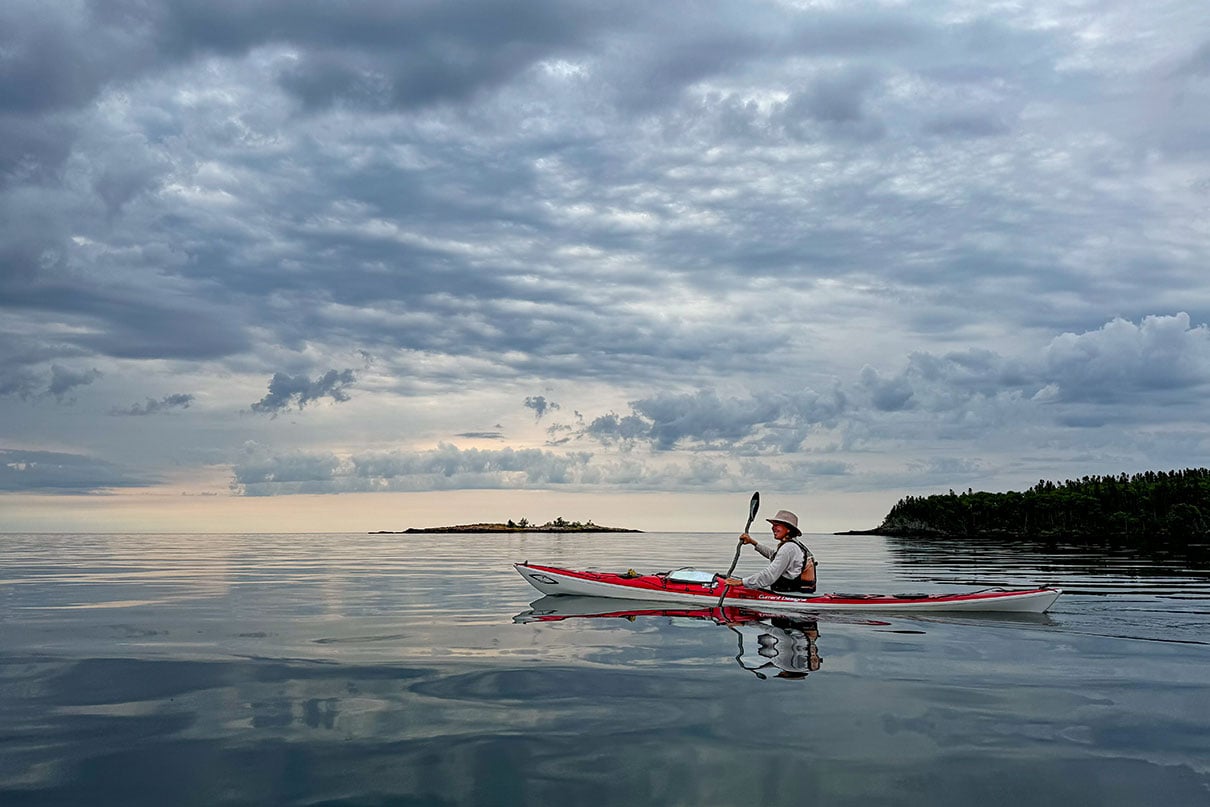
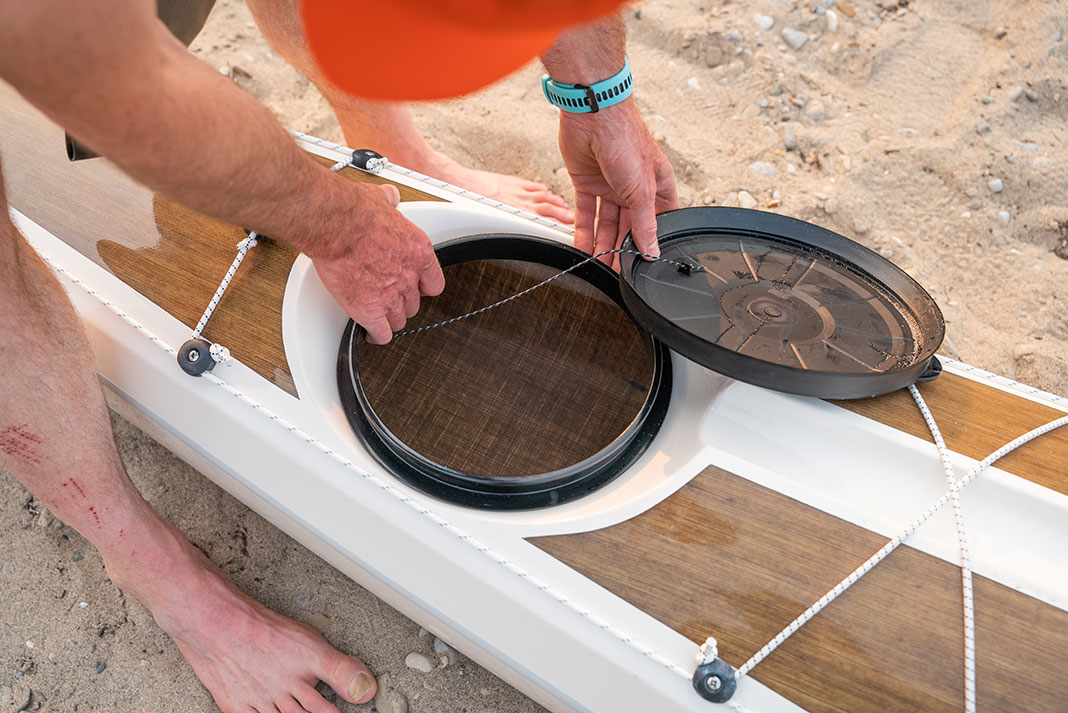
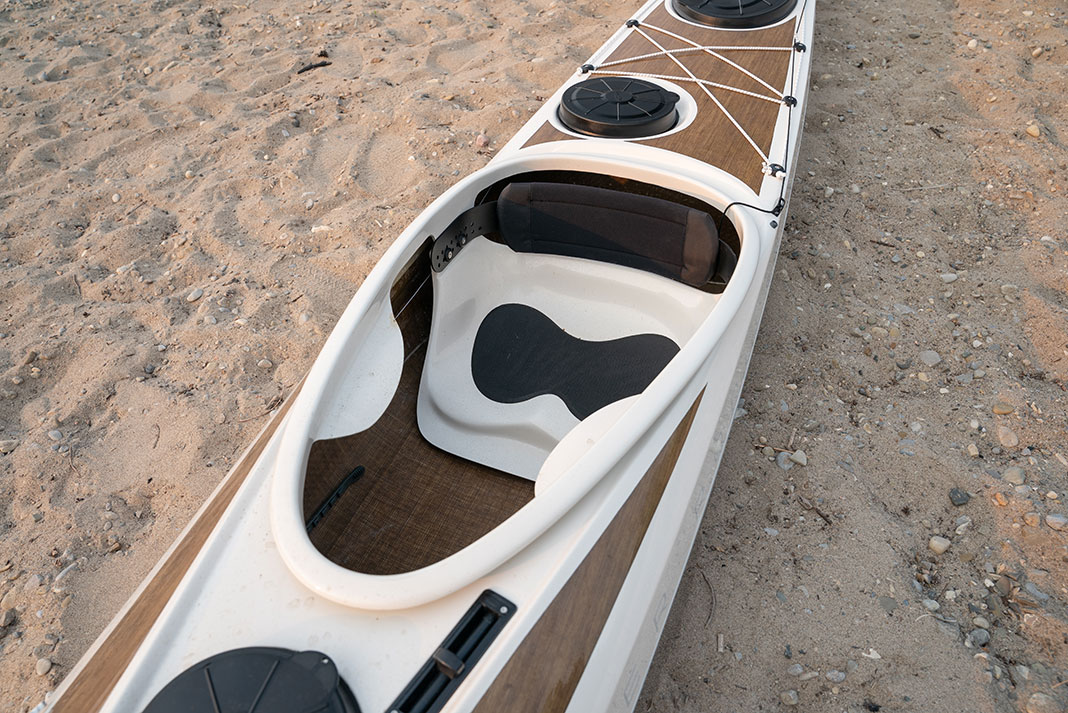
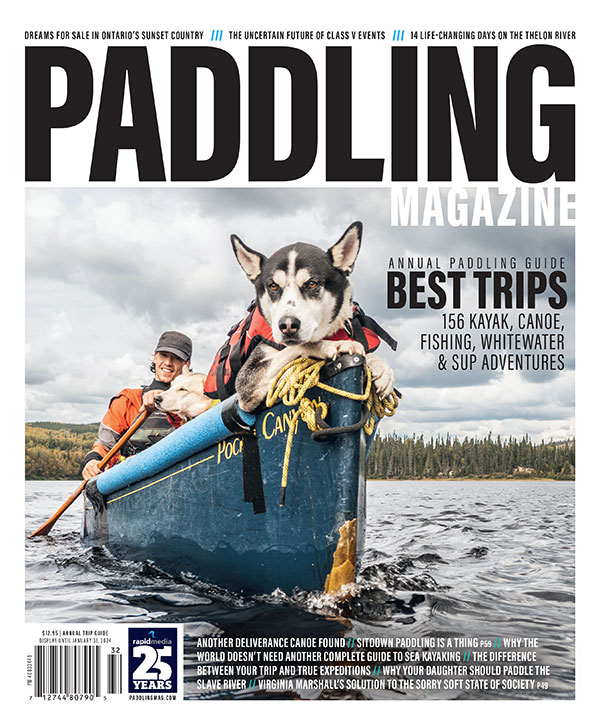 This article was first published in the 2023 Paddling Trip Guide.
This article was first published in the 2023 Paddling Trip Guide.